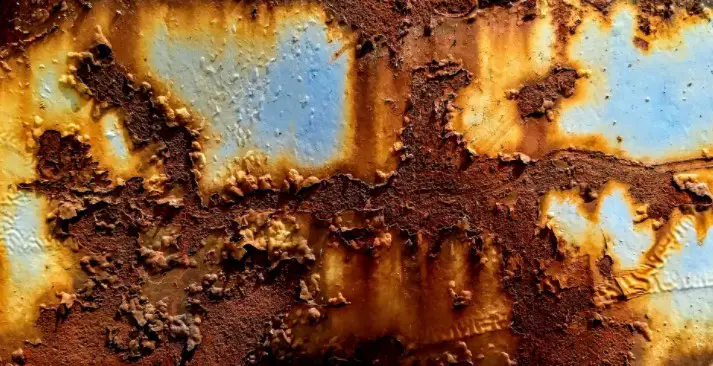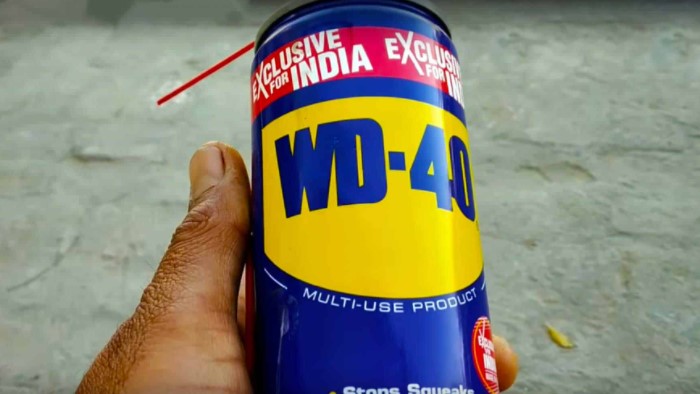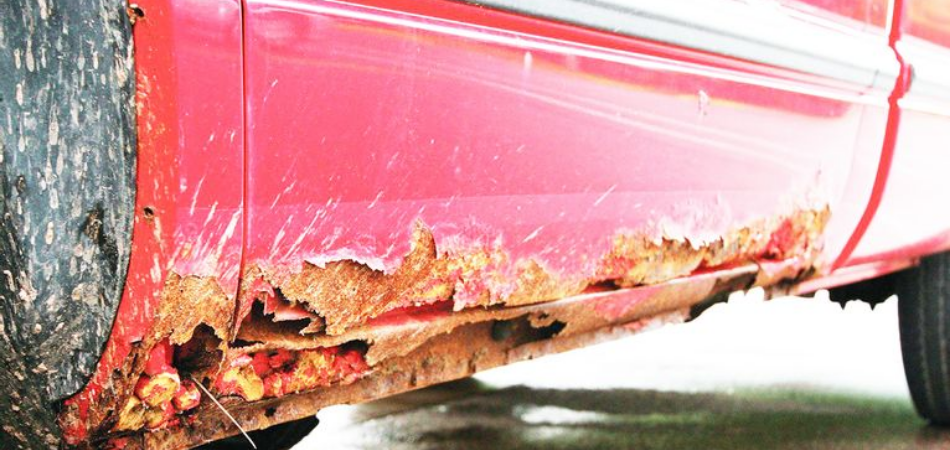The rust on the surface of a metal results from oxidation of the surface. This means that oxygen has reacted with the metal to produce an outer layer of iron oxide. Therefore, rust continues to spread by a chemical process called oxidation. However, does rust continue to grow even with a stop to the chemical process?
Yes, rust will continue to grow until either moisture or oxygen has been eliminated, or the rust is fully consumed. Both moisture and oxygen are required for the rusting chemical reaction to continue, meaning that without one of these substances, the rust will stop growing.
Rust has the opportunity to grow on almost any object made from iron. Once it starts growing, it will continue to grow, especially in the presence of water, oxygen, and salt. Rust can eventually destroy the surface layer of material; therefore, removing the rust could be beneficial to the appearance of your item or its longevity.
To remove, you can use different methods that prove effective, and we have some methods discussed on some pages on this website. Also, it is not appropriate that you cover rust with paint or primer to stop it. It doesn’t work, and the after-effect will be destructive.
You should read further on this page to find out more information on the formation of rust and the best way to prevent and get rid of it.
Contents
What is Rust?
The corrosion that occurs from the exposure of metals (containing iron or one of its alloys – steel, for instance) to moist air is referred to as rust. It is an oxidative chemical reaction between certain metals, oxygen, and water. Some other metals undergo an oxidation process as well, but they don’t corrode like iron; hence, their oxidation is not referred to as rust. An example is the corrosion of copper, which is green – a popular example for such corrosion is the Statue of Liberty.

The Science of Rust Growth
When certain chemical or electrochemical reactions occur in some materials, it leads to deterioration of those materials in a process called corrosion. Rusting is a type of corrosion. It occurs on the surface of metals, mostly iron and its alloys, with the formation of a red or orange coating.
Rusting, as an electrochemical process, occurs on a molecular level in the reaction between iron and oxygen; there’s a transfer of electrons from the iron molecules to the surrounding oxygen molecules, causing the iron to be oxidized. Oxidation of the iron changes its makeup, resulting in rust.
Iron is always undergoing this electrochemical reaction as they have a high affinity for oxygen. That is, it is quite unlikely to find a piece of iron with zero oxide molecules present in it. However, even though rusting is always happening in iron, it is unnoticeable and occurs slowly, but is hastened in the presence of water (and much more accelerated in water with a high concentration of electrolytes, such as salt water, which allows for easier movement of electrons).
Hence, prolonged exposure of iron to air results in rust because moisture is invariably present in the air around us.
Can You Stop Rust from Growing?
To answer the question of whether you can stop rust from growing, you should think of fire. You can put off the fire by wetting its substrate or suffocating – solutions that attack it at its root. Indeed, you can stop rust from growing by solving the “source” problem; any attempt that approaches it otherwise is tantamount to running to fight another day.
Now that you’re fully aware that iron is predisposed to rust due to prolonged exposure to moist air (or specifically, oxygen and water), your best bet is to keep your metal clean and dry. Keeping your metal from a perpetual reach of moist air is a primary way to prevent the onset of rusting. A better way to do so is to coat your metal in a process called galvanization. Galvanization entails the coating of iron with zinc to prevent it from rusting.

However, if your metal has already started to rust, there’s no way to undo the damage already done, but you can stop the rusting from spreading even more to other parts of the metal (especially in situations where you don’t have the luxury of keeping the metal from moist air).
The first thing to do is to remove the already rusted part. Note, this does not necessarily mean an utter severance of the rusted piece from the rest of the metal. When rusting starts in iron, at some point, the rust flakes; exposes new metal underneath the rusted surface to further rust. What you do is remove the flakes, clean the new metal surface now revealed, apply some anti-rust primer, then paint – this should keep rust at bay for a long while.
It’s unwise to directly paint over rust as the desired effect won’t be accomplished. Another method is the use of oil, which prevents or slows down the process because it prevents contact with moisture. However, none of these methods are as effective as coating the iron with zinc (galvanization). Blueing is another method to prevent the onset of rust; it’s a process that creates a magnetic layer over metal to prevent it from rusting.
How Fast Does Rust Grow?
As earlier opined, you can hardly find an iron without a trace of oxygen in it because they have a high affinity for oxygen. This implies that the moment iron is exposed to oxygen and water, the process begins, and rust becomes visible on the metal surface in a matter of minutes, to say the least, or several years. How quickly rust becomes visible on a metal surface is dependent on environmental and metallurgical factors.
For coated metals, when the outer covering is compromised, either by wash, wear, or scratch, rust grows or spreads faster and becomes visible in a short amount of time.
Conclusion
With prolonged exposure, even coated iron eventually rust, although it may take a very long time before this happens. Therefore, you must always attend to the rusting problem as soon as you notice them. Ignoring them will result in an utter degradation of your metal.


